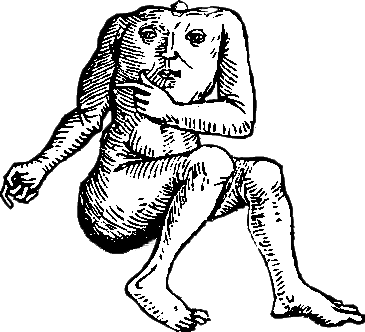ALICIA KENNEDY ON THE METAMORPHOSIS BY FRANZ KAFKA
In an aphorism, Kafka wrote “Believing means liberating the indestructible element in oneself, or more accurately, being indestructible, or more accurately, being”—an idea that takes many forms in Queen Solomon, from Barbra’s search for enlightenment to the narrator’s attempts at re-contextualizing the concentration camp writings of Ka-Tzetnik 135633.
It is in this way (and others) that the shadow of Kafka looms. But with a patriarchal gaze or with the eye of God? Hardly. Sigmund Freud once described Kafka as “the Rashi of contemporary Jewish Anxiety” but his touch is always more ambiguous. In The Metamorphosis, readers find the protagonist, Gregor Samsa, transformed. By what? Work? Familial expectations? The mechanization of the world? Whether ultimately done in by one or by some cocktail of the lot, tensions and anxieties all, he remains Gregor Samsa.
Generalizations are an invitation to argument, but the common beloved of every writer is Franz Kafka. I don’t remember where I had heard of The Metamorphosis or Kafka. What I do remember is the title calling to me at age 12 from the shelf of my local suburban Borders, where my mom took me on Fridays for new books or British music magazines. His name was just in my brain somewhere, learned from the ether. I was in homeroom 7A that year, according to my Sharpie inscription on the inside cover of that Bantam Classics edition, translated by Stanley Corngold. My tween mind was blown; the value of a big opening line learned.
As I grew and read more, Kafka left the ether and was revealed to me as an icon, important not just to me but to absolutely everyone who decides to write. In 2008, Zadie Smith wrote of the myth that shrouds the man in “F. Kafka, Everyman.” She writes, “It is crucial to know the facts of Kafka’s emotional life when reading his fiction. In some sense, all his stories are autobiographical. He is a genius, outside ordinary limits of literature, and a saint, outside ordinary limits of human behaviour. All of these truths, all of them, are wrong.”
Sheila Heti, talking to The Guardian in 2018, gives The Metamorphosis as the book that changed her life. “I read it when I was 15 and it made me realise that you could do anything you wanted in literature—that there were absolutely no rules,” she says. “It made writing seem like a true place of freedom. Not a wastrel freedom, but a meaningful freedom.”
When asked for his top ten books, Jonathan Franzen mentions The Trial, noting “Kafka is not just a writer but a mindset.”
All of this significance has led to there being an incredible number of translations and editions of The Metamorphosis, but perhaps none embodied the book so well as the 2014 W.W. Norton release, with an extravagant cover design by Keenan, creating a regal, black beetle figure out of the title. An introduction written by the filmmaker David Cronenberg, maker of The Fly, sets up a translation by queen of German, translator of Robert Walser, Susan Bernofsky. Finally, here, a slim edition not bulked up with critical essays or selections from Kafka’s letters and diaries.
Cronenberg begins his introduction with “I woke up one morning recently to discover that I was a seventy-year-old man. Is this different from what happens to Gregor Samsa in The Metamorphosis?” We are all, at times, forced to awaken into the truth of who we are—perhaps that’s a vermin, or maybe we’ve just grown old. Life turns us all into monstrous bugs of some sort.
But does Samsa turn into a bug, as he himself referred to it casually, or a vermin, as my original edition, or an insect, as Bernofsky chooses? The more I’ve read the novella in various incarnations, the less I’ve believed it matters. When I read Bernofsky’s translation now, I’m struck more by how it unfolds, how she builds an unsettled atmosphere through her translation of, as she explains in her afterword, the theme of “ruhig/unruhig.” The former suggests every synonym for “calm”; the latter, its opposite. She explains that she uses variations throughout in order to unfold this wavering between tranquility and trouble. As an adult, this motif heightened the sense that it was work itself causing Samsa to be unrecognizable to himself and his family. Like Cronenberg waking up one morning to find himself old, most of us also wake up one day to find ourselves drained of life by the demands of capitalism.
That first edition my mom bought me when I was just a child maintains a precious spot in my heart and history, but when I reread, I go to Bernofsky’s masterful and playful translation with the gorgeous cover, slim enough to slip into any bag I am carrying. Each reading, excuse me, metamorphosizes. As my life circumstances change, I wake up to be someone new and to read Gregor in new lights. Bernofsky’s provides that room, where no reader can get stuck.

